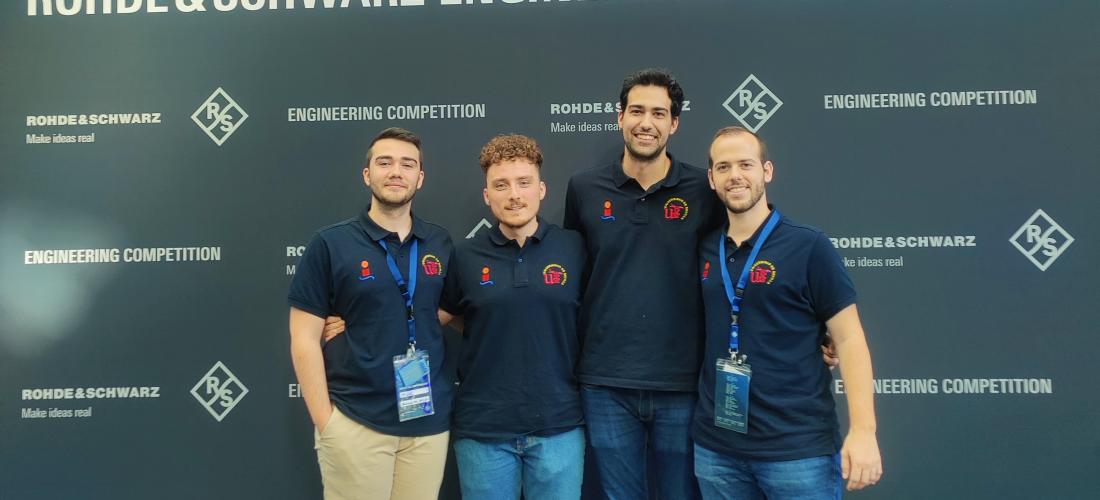A group of ETSi students qualifies for the final of the international Rohde & Schwarz Engineering Competition 2023
Rohde & Schwarz Engineering Competition 2023
The students of the Degree in Engineering of Telecommunications Technologies and the Master of Telecommunications Engineering of the Higher Technical School of Engineering of the University of Seville , Marcos López García, Elías Marqués Valderrama, Iván Matas González and Miguel Nogales González-Regueral have achieved reach the final of the Rohde & Schwarz Engineering Competition 2023 , which will be held in Munich from June 13 to 16.
The Engineering Competition 2023 is an international competition that the leading communication and measurement technology company, Rohde & Schwarz, has been organizing for 19 years. The goal of the contest is to solve a real signal processing challenge, using the best combinations and settings of Rohde & Schwarz hardware engines to accelerate a signal processing line and be the fastest to discover hidden components.
In the elimination phase to advance to the final, the 20 selected teams had to perform the Discrete Fourier Transform (DFT) of a signal provided to them as quickly as possible, maintaining the precision of the result.
The problem to be solved in the final is unknown, since the final part of the competition is reserved as a surprise for the participants, so that they will know the tests to be overcome once they face them. It will, of course, be about optimization of signal processing algorithms, but with a small twist or change of point of view that maintains the essence of the qualifying round, but adds more difficulty to it. The Engineering Competition is a very competitive contest that requires great concentration and the demonstration of high knowledge by the participating teams.
These types of competitions are important because they stimulate creativity, teamwork and the practical application of theoretical knowledge. In addition, they are an opportunity to meet other students and professionals in the field of engineering, as well as to discover the latest innovations in the field of signal processing.
“Within our personal experience, the most gratifying thing has been to see that with the knowledge acquired during the degree, we have been able to respond to a problem that not only required knowledge in programming, but also required knowledge of the Fast Fourier Transform technique ( FFT), which is a competence acquired in the degree. Finally, we think that the best is yet to come. There are three exciting days left in Munich, where in addition to testing our skills, we will share experiences with other students from other regions of the world, which will surely provide unforgettable learning,” says Elías Marqués, one of the team members.
